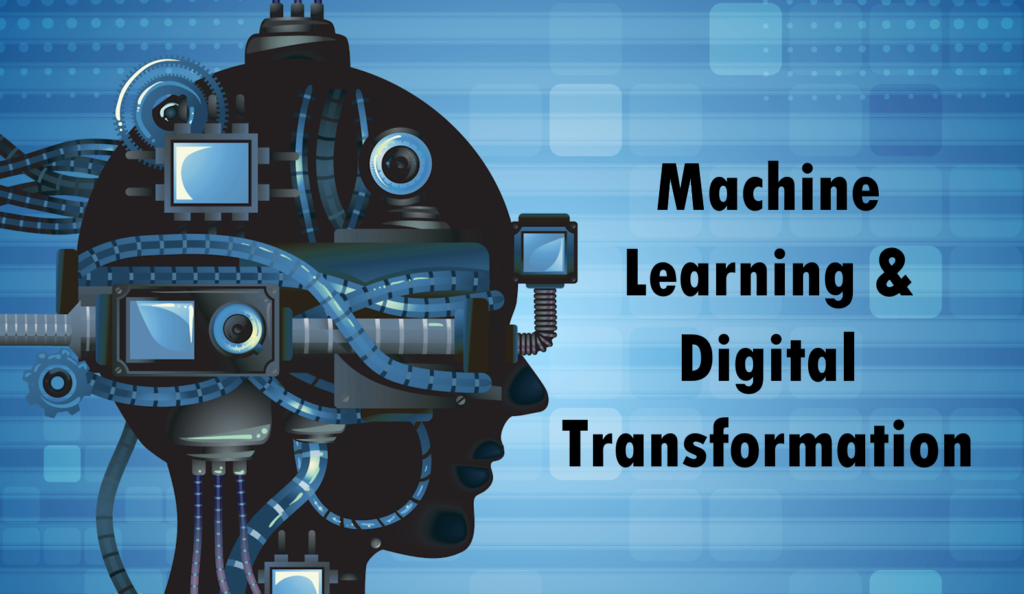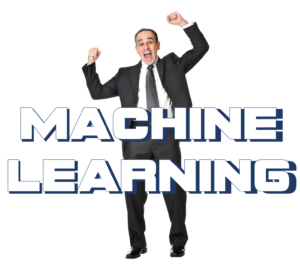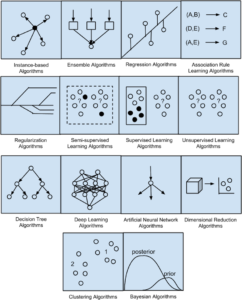There have been a lot of labels attached to the day-and-age in which we live, including the Computer Age, the Digital Age, and the Information Age. Although these monikers conjure up slightly different connotations, they all rest on the fact that data is being created at an unprecedented historical rate. Keeping up with and making sense of all this data is far beyond the capabilities of traditional analytic methods. As a result, cognitive technologies (aka artificial intelligence systems) have come into their own. The most important of these technologies is machine learning (ML). The staff at Predictive Oncology explains, “Machine learning and artificial intelligence (AI) are no longer the concepts of science fiction — they’re a $1.41 billion industry that is already making big changes to the way we understand and use immense databases for a wide range of purposes. From supporting cutting-edge cancer research to helping businesses track their inventory, machine learning and AI offer the ability to disrupt and enhance our existing processes in virtually every segment of society.”[1]
If you think their rhetoric is hyperbolic, think again. Members of Forbes Technology Council have identified a number of industries (and functions within those industries) that have been or will be revolutionized by machine learning.[2] Those industries include: Manufacturing; Medicine and Healthcare; Consumer Packaged Goods; Marketing; Insurance; Supply Chain Management; Energy and Utilities; Service Industry; Education; Financial Services; Government; Science; and Retail. The Council concludes, “Machine learning can open up new insights and possibilities for industries of all stripes. Many companies are looking for ways to leverage the technology to boost productivity, improve customer relations and more.”
Machine Learning and Why It’s Important
Eric Siegel (@predictanalytic), a former computer science professor at Columbia University, writes, “Machine learning … is genuinely powerful and everyone oughta be excited about it.”[3] Tech journalist Bobby Hellard (@jBobbyHellard) adds, “Machine learning represents a new frontier in technology.”[4] He continues, “Machine learning is the process of teaching a computer system to make predictions based on a set of data. By feeding a system a series of trial and error scenarios, machine learning researchers strive to create artificially intelligent systems that can analyze data, answer questions, and make decisions on their own. Machine learning often uses algorithms based on test data, which assist with inference and pattern recognition in future decisions, removing the need for explicit instructions from humans that traditional computer software requires.” Freelance writer Cynthia Harvey explains there are four types of machine learning.[5] They are:
- Supervised Learning: “Supervised learning requires a programmer or teacher who offers examples of which inputs line up with which outputs.”
- Unsupervised Learning: “Unsupervised learning requires the system to develop its own conclusions from a given data set.”
- Semi-supervised Learning: “Semi-supervised learning, as you probably guessed, is a combination of supervised and unsupervised learning.”
- Reinforcement Learning: “Reinforcement learning involves a system receiving feedback analogous to punishments and rewards.”
Daniel Faggella (@danfaggella), Head of Research at Emerj, adds, “While unsupervised learning allows for a wide degree of applications in making sense of data without labels, it’s usually not advised for companies to ‘jump into’ ML with a first application in unsupervised learning. The low-hanging fruit for an ML use case is likely to spawn from its historical, labelled data.”[6] So what makes machine learning so important for today’s companies? Most experts insist that Industrial Age companies need to transform to survive in the Digital Age. Tricia Wang (@triciawang), a self-described Tech Ethnographer & Sociologist, explains, “A lot of companies treat digital as if they are ‘doing digital’ — this is ‘digitization’ at its worst — as if it’s some checklist of things to do. It’s very transactional, and people are so busy doing digital they don’t even know WHY they are doing it in the first place! Whereas [some companies] embrace ‘being digital’ — this is ‘digital transformation’ at its best — it’s a total paradigm shift in the culture and operations — it’s not just about buying the latest digital tool, but about creating a new system, new cadence, new mindset.”[7]
Tech journalist Christian Rigg agrees with Wang. He writes, “Digital transformation can be defined as the re-conceptualization and restructuring of business practices, operations, and culture through the reasoned integration and adoption of digital tools, typically with a highly customer-centric focus.”[8] He asserts that machine learning helps with this transformation. He explains, “Machine learning excels at rapidly organizing, analyzing, and making intelligent decisions and recommendations based on large quantities of data. It empowers employees and business leaders to make full use of company data, and to do so much more quickly, easily and comfortably than ever before. This frees team leaders and members from mundane, repetitive or complex and time-consuming tasks, enabling them to focus on meeting business objectives and provide outstanding customer experience.”
The bottom line always matters in business. That is why companies embrace digital transformation — to help them remain relevant and profitable. Machine learning and AI expert Bernard Brode explains profitability alone is a good reason for companies to leverage machine learning. He insists, “AI gets the glory but ML is quietly making fortunes.”[8] That’s why Siegel insists companies should get excited about machine learning. Brode explains, “ML has already led to a quiet revolution. … Researchers estimate that ML has the potential to add $2.6 trillion in value to the marketing and sales industry by 2020, as well as another $2 trillion to manufacturing and logistics fields. McKinsey predicts that machine learning will help manufacturing businesses reduce material delivery times by 30% and achieve 12% fuel savings by optimizing their processes. The firm also estimates that companies can increase gross revenue by 13% if they fully integrate AI-driven technologies into their business. Deloitte estimates AI-driven programs can help businesses reduce unplanned downtime by 15% to 30% and save 20% to 30% in maintenance costs.” He concludes, “For most people — and certainly most businesses — reducing overhead and maximizing efficiency are far more important in the here and now world. And that’s why, despite ongoing research into ‘true’ AI (such as that into a more environmentally friendly way to train them), ML is likely to be far more important in the coming decade.”
Concluding Thoughts
The above discussion does not mean to imply that machine learning is the only technology required for successful digital transformation. It’s one of many technologies but an important one. As Wang and Rigg noted above, digital transformation is about more technology. It also involves people, culture, and a new way of working. Rigg concludes, “A successful digital transformation strategy should focus on empowering employees and business leaders. It should equip them with digital tools that simplify business processes, encourage innovation and creativity, and provide a fuller understanding of the customer experience. Machine learning, by virtue of its ability to rapidly and intelligently analyze company and customer data, can do just this. Businesses are already using machine learning to augment a variety of business units and successfully undergo digital transformations.”
Brode agrees. He concludes, “ML is best used to augment human capabilities, not replace them.” Enterra Solutions® is determined to help companies accelerate their digital transformation and empower their employees by focusing on Autonomous Decision Science™ (ADS®) and how it can help relieve people of information overload while simultaneously helping them make better decisions. As Bain analysts, Michael C. Mankins and Lori Sherer (@lorisherer), explain, “Companies that make better decisions, make them faster and execute them more effectively than rivals nearly always turn in better financial performance. Not surprisingly, companies that employ advanced analytics to improve decision making and execution have the results to show for it.”[10]
Footnotes
[1] Predictive Oncology, “The Machine Learning Future Is Now: How AI is Disrupting Entire Industries,” Nasdaq, 4 January 2022.
[2] Forbes Technology Council, “16 Industries And Functions Tech Experts Say Will Soon Be Revolutionized By ML,” Forbes, 15 February 2022.
[3] Eric Siegel, “Why A.I. is a big fat lie,” Big Think, 23 January 2019.
[4] Bobby Hellard, “What is machine learning and why is it important?” IT Pro, 19 July 2022.
[5] Cynthia Harvey, “What is Machine Learning?” Datamation, 3 January 2018.
[6] Daniel Faggella, “How to Apply Machine Learning to Business Problems,” Emerj, 25 April 2020.
[7] Trevor Miles, “Let’s be clear: Digitization is not the same as Digital Transformation,” Kinaxis Blog, 8 December 2017.
[8] Christian Rigg, “What is machine learning, and why is it crucial for your digital transformation strategy?” TechRadar.Pro, 12 August 2022.
[9] Bernard Brode, “AI Gets the Glory but ML is Quietly Making Fortunes,” insideBIGDATA, 8 May 2021.
[10] Michael C. Mankins and Lori Sherer, “Creating value through advanced analytics,” Bain Brief, 11 February 2015.





